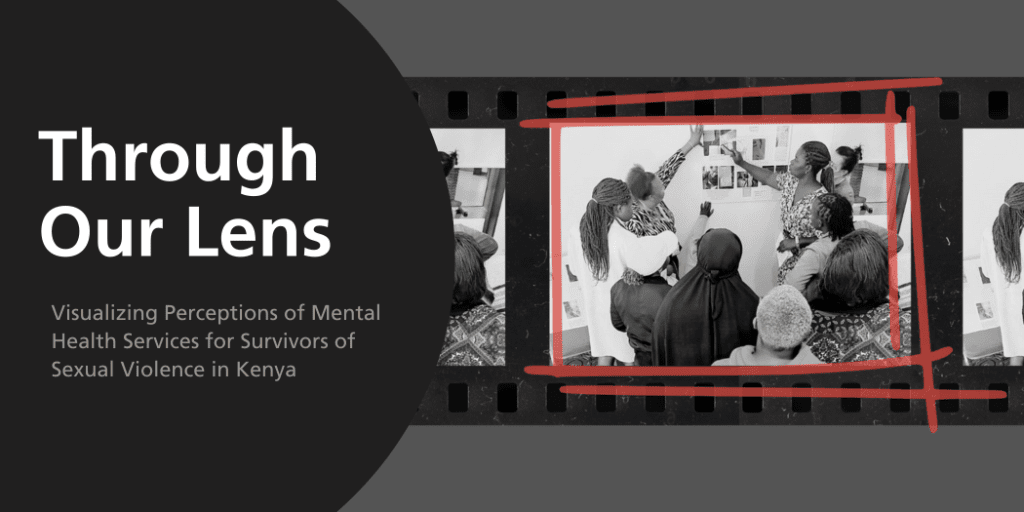Survivors of sexual violence in Kenya have the right to mental health care, yet services are widely lacking. For those who do attempt to find the mental health care they need, what do they experience?
This is the guiding prompt for images and reflections from survivors of sexual violence in Nairobi, Kenya. Using a participatory methodology called Photovoice, a group of women set out to document their journey to seek out and access mental health care. The resulting collection of images reveals significant gaps in the availability, accessibility, acceptability, and quality of mental health services being offered to survivors in Nairobi. Read more about this project
These photos ask us to consider how surviving sexual violence might change how a person looks at their community when using mental health services, where even daily scenes can take on new meaning: Crowded public transportation may induce anxiety; trash in a flooded lot evokes a sense of despair. For one survivor, even a malfunctioning streetlight is a reminder that women in Nairobi are at risk of attacks on the streets. Others described health facilities where survivors receive mental health services in areas that are not private, to show that even the services that are available do not always make survivors feel comfortable. In some of the images, survivors have recreated typical interactions, such as with strangers on the street, or in conversation with mental health professionals, to illustrate experiences of social stigma, isolation, and lack of privacy. Yet the images also convey hope. Women standing together in solidarity, or friends gathered together to talk about health care. Even smooth paving leading to a health clinic is an encouraging sign.
These survivors in Kenya were motivated to document issues important to them and their community. Taken together, their images serve as a reminder that survivors of sexual violence in Kenya have the right to mental health care, and the government of Kenya is obligated to provide it. Explore the galleries below or read the assessment “Voicing Our Plight: Using Photovoice to Assess Perceptions of Mental Health Services for Survivors of Sexual Violence in Kenya”

Ashura Mciteka
Beatice Karore
Bonila Sisia
Diana Mushiyi
Grace Kamau
Lorraine Ong’ijo
Millicent Akinyi
About the Project
In Kenya, 34 percent of women and girls aged 15-49 years surveyed have experienced physical violence at least once in their lifetime and 13 percent have experienced sexual violence, with many of these cases going unreported. SGBV has profound impacts on survivors’ physical and mental health, and access to mental health care is a major challenge for survivors of sexual violence.
Physicians for Human Rights’ Program on Sexual Violence in Conflict Zones began working in Kenya in 2011 to confront impunity for sexual violence committed during the unrest that followed the 2007 national elections. From 2020 to 2022, PHR worked with partners, including the Survivors of Sexual Violence Network in Kenya (SSVKenya) convened by the Wangu Kanja Foundation, to address challenges faced by survivors. These included medical-legal documentation of the mental health impacts of sexual violence and access to quality mental health services in Kenya.
The project, supported by the Comic Relief & UK Aid Mental Health Programme, aimed to enhance the capacities of health professionals and institutions in Kenya to provide post-rape mental health care and to forensically document the mental health impacts of sexual violence, as well as to strengthen the legal and policy framework on mental health care in Kenya.
This assessment arose out of PHR’s interest in understanding the impact of these interventions and related advocacy from the perspective of survivors of sexual violence, themselves. To ensure the voices of survivors remained at the heart of the assessment, PHR partnered with SSVKenya, an advocacy coalition comprised of survivors of sexual violence in Kenya.









